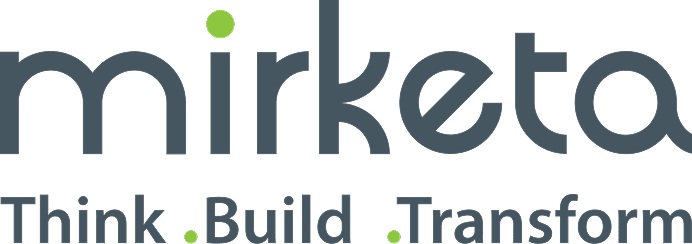Unleashing Salesforce’s Sales Analytics: A Complete Guide
Author
August 5, 2025
Introduction
Salesforce, a leading CRM platform, offers robust sales analytics capabilities that help businesses make informed decisions, improve productivity, and increase revenue. This guide explores the importance of sales analytics in Salesforce, its key features, and how to effectively utilize them to enhance your sales team’s performance.
Key features of Sales Analytics
1. Reports and Dashboards
Salesforce provides powerful reporting features that allow for easy visualization and analysis of data. Custom dashboards and reports can be tailored to meet your business needs, providing real-time insights into lead conversion, sales performance, and other critical metrics.
2. Einstein Analytics
Powered by artificial intelligence, Einstein Analytics offers predictive and prescriptive insights, helping to identify hidden opportunities, predict trends, and make actionable recommendations to refine your sales strategy.
3. Sales Cloud Analytics
This feature is designed to optimize sales outcomes by offering comprehensive metrics on individual and team performance. It aids in better goal tracking, incentive planning, and overall sales management.
4. Forecasting Tools
Accurate forecasting is crucial in sales. Salesforce’s forecasting tools utilize AI, pipeline insights, and historical data to provide precise revenue projections, enabling proactive decision-making and resource allocation.
Utilizing Salesforce Sales Analytics for Business Purposes
- Executives: Gain a comprehensive overview of sales, service, and pipeline performance, with access to dashboards that highlight critical agreements.
- Managers: Start with key performance indicators (KPIs) and drill down into details such as quota attainment, pipeline changes, team trends, and sales cycle times. Focus on team performance to expedite deal closures.
- Sales Representatives: Access data on personal bookings, pipeline activities, and quota attainment. Quickly identify new business opportunities to meet targets.
- Operations Staff: Analyze performance trends by customer, source, and region to streamline new negotiations.
Setting Up the Sales Analytics App:
1: Launch the Analytics Studio
Access Analytics Studio through the Sales Home by selecting the ‘Apps’ button.
2: Using the Search Box
If Sales Analytics does not appear by default, use the search bar to locate it.
3: Accessing the Default Dashboard
The default dashboard provides metrics like Closed Won, Win Rate, Average Deal Amount, and Average Days in Sales Cycle.
4: Changing the Goal Widget
Adjust the goal widget values to align with your business objectives.
5: Accessing Other Dashboards
Explore additional dashboards tailored for different roles, including Sales Managers and Executives.
Step 6: Using the Lens to add Visualizations
Utilize the Lens feature for object-specific visualizations, such as analyzing opportunities by time, stage, owner, and more.
Conclusion
Integrating Salesforce’s Sales Analytics with Tableau CRM creates a comprehensive Business Intelligence (BI) solution. However, due to a potential learning curve and cost considerations, some businesses may benefit from third-party analytics solutions. Exporting Salesforce data into these platforms can provide a more accessible and user-friendly alternative.
Frequently Asked Questions (FAQ) on Salesforce Analytics
1. What is Salesforce Analytics?
Salesforce Analytics is a cloud-based analytics and business intelligence solution offered by Salesforce. It helps organizations visualize, explore, and act on their data through interactive dashboards, reports, and AI-powered insights—right inside the Salesforce platform.
2. How is Salesforce Analytics different from standard Salesforce reports?
While standard reports offer basic insights, Salesforce Analytics (formerly known as Tableau CRM or Einstein Analytics) provides advanced data modeling, predictive analytics, and interactive dashboards that go beyond traditional reporting capabilities.
3. What are the key features of Salesforce Analytics?
Some standout features include:
- AI-powered predictions and recommendations
- Real-time dashboards and visualizations
- Mobile-ready insights
- Integration with external data sources
- Drill-down capabilities to explore metrics in depth
4. Who uses Salesforce Analytics?
Salesforce Analytics is used by sales leaders, marketers, service teams, and executives to make data-driven decisions. It helps visualize KPIs, sales pipeline trends, campaign performance, and customer service metrics in one centralized view.
5. Can Salesforce Analytics integrate with other tools?
Yes, Salesforce Analytics supports data integration with various external systems such as SAP, Google Analytics, AWS, Snowflake, and more using connectors and APIs.
6. Is Salesforce Analytics the same as Tableau?
No, but they are closely related. Salesforce owns Tableau, and both platforms serve different use cases. Salesforce Analytics (formerly Tableau CRM) is more deeply embedded within the Salesforce ecosystem, while Tableau serves as a broader BI platform.
7. Do I need technical skills to use Salesforce Analytics?
Not necessarily. Business users can use pre-built templates and drag-and-drop tools. However, deeper customization (like SAQL queries and dataflows) may require help from Salesforce developers or admins.
8. How can Salesforce Analytics help improve ROI?
By providing real-time insights into your sales, marketing, and service performance, Salesforce Analytics enables faster, more informed decisions, reducing costs, improving efficiency, and boosting ROI.
9. Is Salesforce Analytics available in all Salesforce editions?
No, Salesforce Analytics is typically available as an add-on or with specific editions like Salesforce Platform Plus or Salesforce Einstein licenses. You may need to purchase it separately depending on your Salesforce plan.
10. Where can I learn more or get help setting up Salesforce Analytics?
You can explore our Salesforce Analytics consulting services at Mirketa. Our experts help with implementation, dashboard setup, training, and custom reporting solutions.
Recent Posts
-
 Salesforce API Testing – The Modern QA Approach for Reliable Integrations05 Jan 2026 Blog
Salesforce API Testing – The Modern QA Approach for Reliable Integrations05 Jan 2026 Blog -
 Transforming SMB Sales with Salesforce Commerce Cloud12 Nov 2025 Blog
Transforming SMB Sales with Salesforce Commerce Cloud12 Nov 2025 Blog -
 Generative AI Testing tools03 Nov 2025 Blog
Generative AI Testing tools03 Nov 2025 Blog -
 Mirketa Unveils Next-Gen AI Solutions to Redefine the Future of Work Across Industries29 Jul 2025 Press Release
Mirketa Unveils Next-Gen AI Solutions to Redefine the Future of Work Across Industries29 Jul 2025 Press Release
You Have Questions,
We Have Answers
Talk to our experts today and explore how we can help you build a connected and efficient digital ecosystem.










